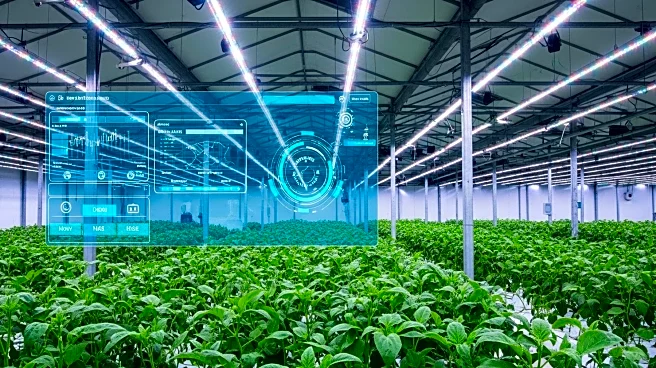What's Happening?
Agreena has introduced AgreenaGro, a digital platform aimed at supporting farmers in the UK as they transition to regenerative agriculture. This platform is designed to help farmers navigate challenges such as rising costs, shifting policies, and climate pressures. AgreenaGro offers tools that enable farmers to enhance soil health and reduce emissions, thereby unlocking financial and ecological value from their land. The platform provides features like automated data collection, sustainability tracking, and peer support, along with monetization tools for verified environmental outcomes. Agreena emphasizes transparency and data security, ensuring farmers retain control over their information.
Why It's Important?
The launch of AgreenaGro is significant as it addresses the growing need for sustainable farming practices amidst environmental and economic challenges. By providing financial incentives and real-time insights, the platform helps farmers improve their resilience and sustainability. This initiative not only supports farmers in reducing their carbon footprint but also opens new revenue streams through carbon credits and partnerships with food and beverage companies. As the agricultural sector faces increasing pressures, AgreenaGro offers a practical solution to enhance productivity while contributing to environmental conservation.
What's Next?
Agreena plans to expand the AgreenaGro platform by integrating an AI-powered farm assistant. This addition will provide tailored agronomic insights in real-time, enabling farmers to make faster, data-driven decisions. The expansion aims to further support farmers in optimizing their operations and achieving sustainability goals. As the platform evolves, it is expected to attract more partnerships and increase its impact on the agricultural industry.
Beyond the Headlines
The introduction of AgreenaGro highlights the ethical and cultural shift towards sustainable farming practices. By promoting regenerative agriculture, the platform encourages a long-term approach to land management that prioritizes ecological health. This shift could lead to broader changes in the agricultural industry, influencing policy and consumer behavior towards more sustainable food production.









